Successfully quitting opium for the whole community
The forest was silent, no one was in sight at noon. After nearly 300 kilometers from Dien Bien Phu City, I arrived at Ta Ko Khu, a Ha Nhi village, in Sin Thau Commune, Muong Nhe District, Dien Bien Province - the westernmost point of the country, where the sun sets last on Vietnamese territory.
Although it is a remote border, the Ha Nhi people are densely populated, living in houses with square, box-shaped walls and short, sloping roofs covered with corrugated iron. No one remembers exactly when the Ha Nhi people started living here, but it is known that when their great-grandfathers, grandfathers, and fathers were born here. They are considered children of the mountains, growing up from the mountains...
Stepping out of the car, I caught sight of the big, dreamy eyes and long eyelashes of a Ha Nhi child, about 8 years old. I asked for directions to Mr. Po Dan Sinh's house, and the little girl smiled and replied: Over there. Let me show you.
The little girl with a mouse tooth named Po Nhu Ly led us into a house in the village. This was the house of a prestigious person, Mr. Po Dan Sinh (67 years old), a former key official of Sin Thau commune in 2010. Just a few minutes later, a lot of people from the village came. I gave the cake package to the children, the little girl who had led the way bowed her head to receive it, then passed it to the adults. Seeing the old lady smiling warmly and giving gifts to the children, they politely accepted, I understood that: the lifestyle here is educated with carefulness and politeness, "respecting elders and giving way to juniors."
In Mr. Po Dan Sinh's memory, it is unclear when the Ha Nhi people appeared in Ta Ko Khu. He only knows that when he was born, his father was already here. And his father participated in bandit suppression in the 70s.
“At that time, I was about 13-14 years old, I had to carry rice all the way to Ban Xa (the center of the old Lai Chau province), now Muong Lay town, Dien Bien province to study. Every time I went to school, I had to walk for 10 days. The road to Sin Thau was not as easy as it is now. The road was just a trail, with many trees and forests. Every time I went to school, I could only go home once a year. Every time I went home, I didn’t want to go to school. If my father hadn’t been so strict… my brothers and I would all be illiterate,” Mr. Sinh said.
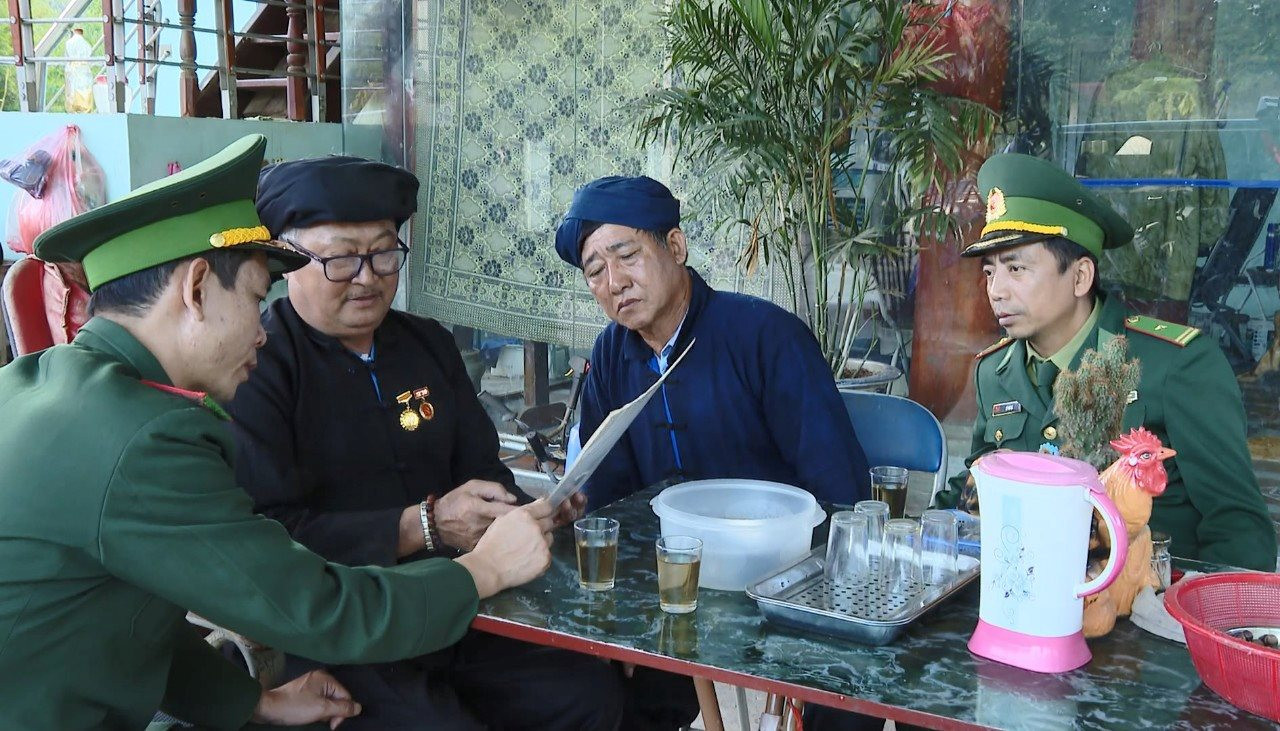
In the 90s, no one in the Ha Nhi community was more educated than Mr. Po Dan Sinh and his brothers. His younger brother was Mr. Po Diep Sang, former Secretary of Muong Nhe District, former leader of Dien Bien Province's mass mobilization. He was the chairman and secretary of Sin Thau Commune until 2013. In Mr. Po Dan Sinh's stories, I was deeply moved when I heard him talk about the years when he and the Border Guard soldiers rehabilitated the whole village, including his mother-in-law.
He said: In 1997, the drug epidemic flooded Ta Ko Khu village like a flood. Everywhere in the village, we saw opium addicts, the villagers looked at each other with caution... Theft was rampant, the whole village was sad, deep sadness... sadness spread even to weddings. At that time, Sin Thau commune had 105 opium addicts. At that time, I, as the head of the commune, registered with the Sin Thau Border Guard Station officers and the district and provincial leaders to send all the addicts to rehabilitation. Among them was my mother-in-law.
I took all the addicts to the new Ta Lo San village, 2 days away from the commune center, to reclaim land and build houses for the new village, build roads and huts, and to help them quit opium. The Border Guard Station supported the staff to manage the number of soldiers, medical staff, and medicine. The elderly and weak people with low resistance like my mother-in-law were taken to the commune center for drug rehabilitation. My mother-in-law had been addicted for 37 years. It was very difficult to help her quit, she only succeeded 3 times.
Then he pointed to the former village chief Vu Vu Sinh sitting next to him: This guy here, he was also an addict in the past, we had to go to rehab for him, he was so angry he was dying! These guys were sent to a far away village, walking for 2 days, staying there for 2 years, where did they get opium to eat? How could they escape, the Border Guards were guarding them day and night. And if we don't do that, it will take a long time to get rid of them. Right?
The former head of Vu Vu Sinh village blushed, scratched his head and smiled, affirming: “Yes! That’s right! If Sinh hadn’t done that back then, I and many others would be addicted now! That’s why in 1999, our commune was awarded a Certificate of Merit by the Provincial People’s Committee. And since then, there have been no drug addicts among the Ha Nhi people in Sin Thau.”
“Keep the fire burning”… for tomorrow
The sun was at its zenith, we said goodbye to Mr. Sinh and Ta Ko Khu village, and headed to A Pa Chai village. That village has a border junction, bordering 3 countries: Vietnam, China, and Laos.
Village elder Ly Xuyen Phu, A Pa Chai village, shared: The whole Sin Thau commune has an area of over 16,000 hectares, with a population of over 1,400 people living in 7 villages. - Including Ta Ko Khu and A Pa Chai villages, over 98% are Ha Nhi ethnic people. The whole commune has 40.5km of national border, with 16 landmarks, including landmarks bordering 3 countries: Vietnam, Laos and China.
Mr. Ly Xuyen Phu has a large, strong body, harmonious facial features, the sun sets on the mountain, he still tells about his life, the life of a loyal party member, the leader of Sin Thau commune in previous years. Pieced together the story from many stories: In 1979, during the war to protect the border, Mr. Ly Xuyen Phu was young, working as a commune team leader with the Ha Nhi people, specializing in transporting guns, bullets, and rice to serve the campaign against foreign invaders.
“At that time, I called on and commanded 60 militiamen from Sin Thau commune to join the Armed Police (now the Border Guard) to fight at the 1,296 high point (A Pa Chai village) and the border posts, preventing the invaders from going deep into the border. Protecting the Fatherland, protecting the A Pa Chai landmark. If we talk about the days when the Ha Nhi people in the far west of the Fatherland helped the army protect the border, there are many examples. From my grandfather, my father, to me and my siblings… my children and grandchildren will do the same. Because that is our homeland, our Fatherland. No matter how many years later, our children and grandchildren must do the same,” said Mr. Phu.
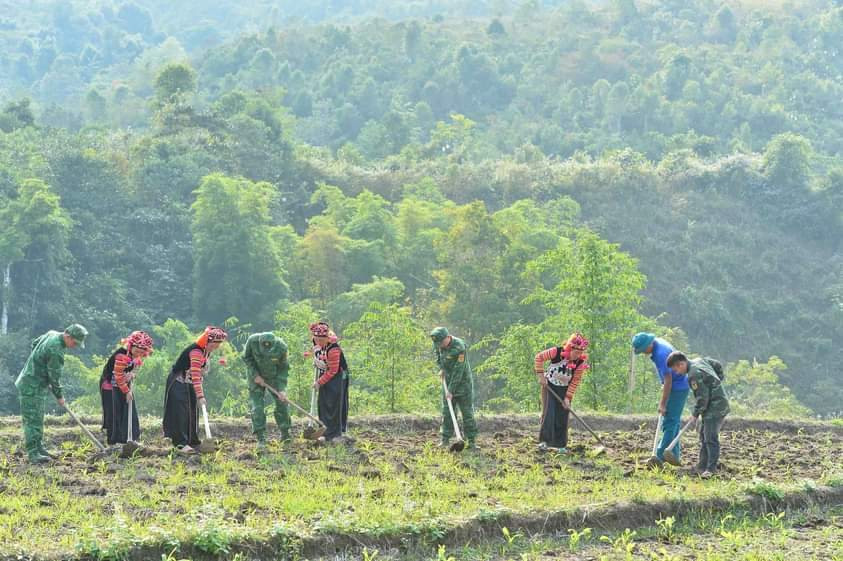
With a dirty face, we arrived at A Pa Chai Border Post. We were welcomed by Major Dang Van Tuan, Chief of A Pa Chai Border Post, who told us many stories about the Ha Nhi people at the border junction who are sincere, simple, united, and loyal to the Party.
Major Dang Van Tuan has been attached to A Pa Chai Border Post for a long time, understands the personality and lifestyle of the Ha Nhi people, and knows the personality of village elder Ly Xuyen Phu and the prestigious Po Dan Sinh... like his own father.
He said: “The Ha Nhi people in Sin Thau are really good. They are always united, loyal, and close-knit... They do not follow strange religions, do not listen to bad people, do not migrate freely, do not destroy forests... They always encourage, support, and help officers and soldiers, and the A Pa Chai Border Guard Station to patrol and protect the border. That is why we feel the responsibility of protecting the border is even more noble and proud.”
In addition to stories about the studious Ha Nhi people, helping the Border Guards maintain the border, the role models of protecting the forest, protecting the village..., there are also examples of labor production, rising up to escape poverty sustainably. Multi-generational families like Mr. Po Dan Sinh's family contribute a significant amount of intellectual human resources to the district and commune... They are also the families leading the movement to get rich on their homeland, village... not through deceitful business deals. But it is because of their diligence, hard work. They love the land, love the forest, love their homeland, and their people that gradually formed their hometown. Speaking of the Ha Nhi people in the far west of the country, they are always the pioneers of positive movements in Muong Nhe, Dien Bien.
Source






![[Photo] Visiting Cu Chi Tunnels - a heroic underground feat](https://vstatic.vietnam.vn/vietnam/resource/IMAGE/2025/4/8/06cb489403514b878768dd7262daba0b)




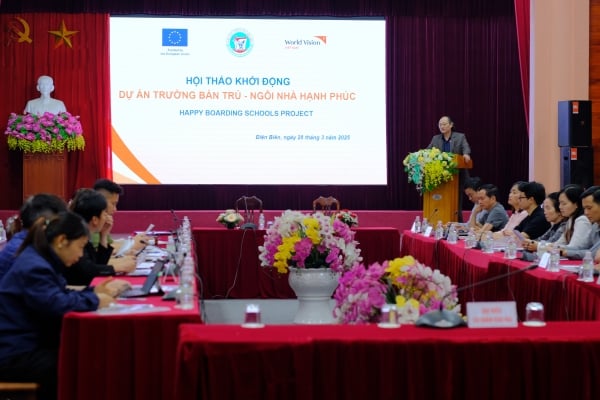












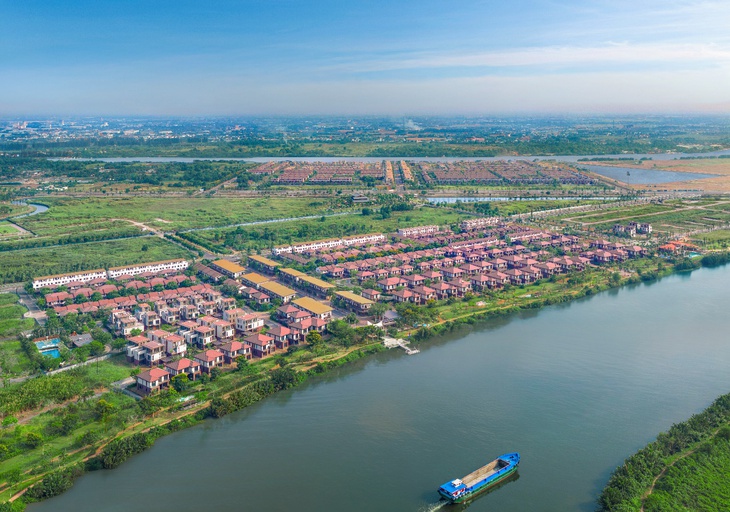

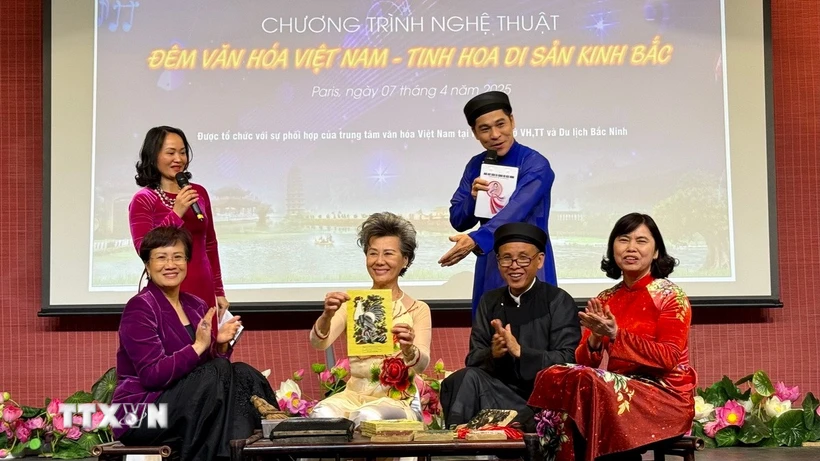

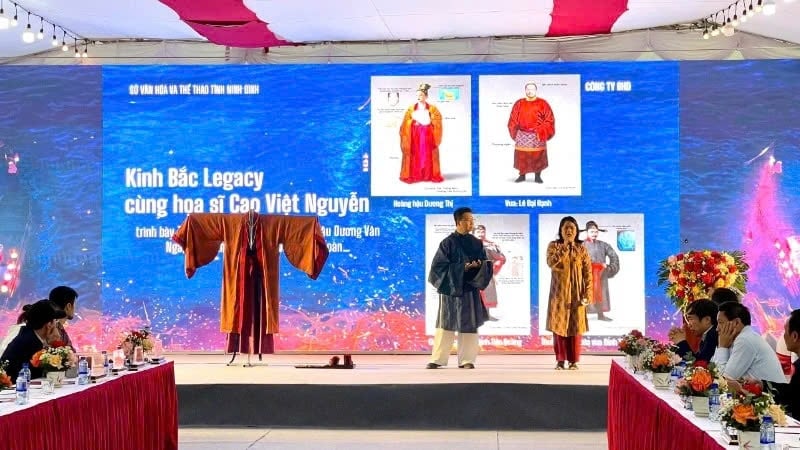

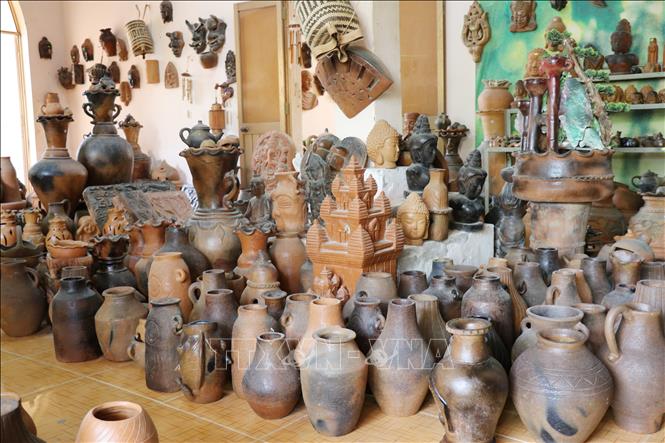

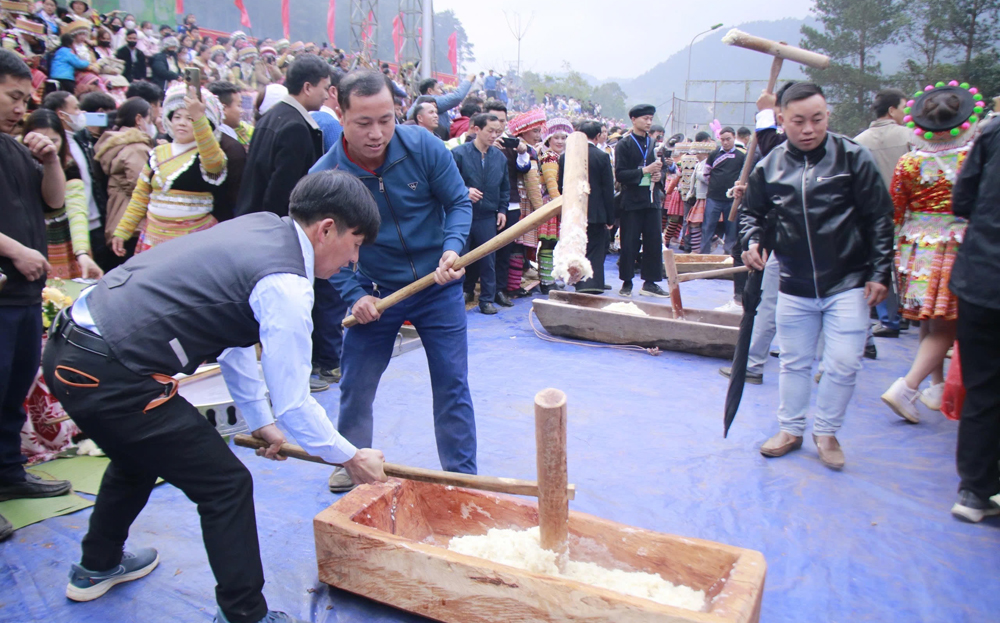

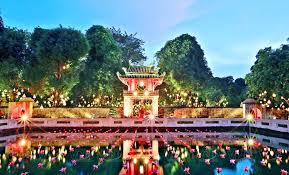








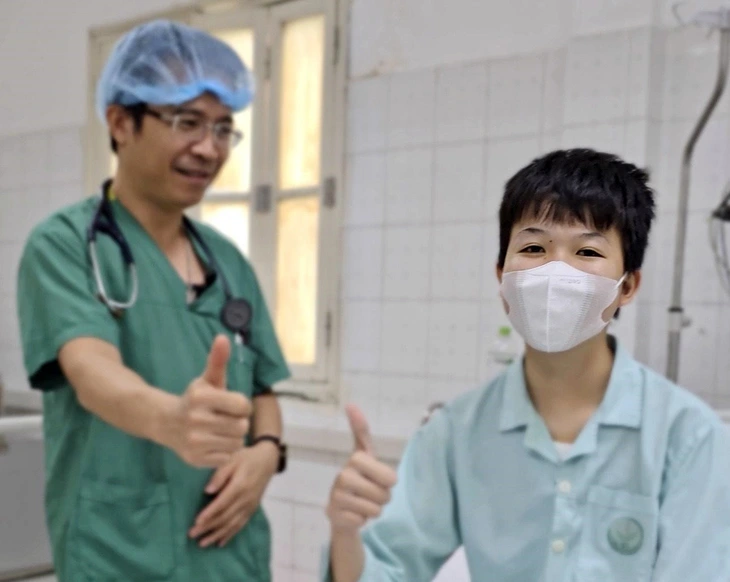







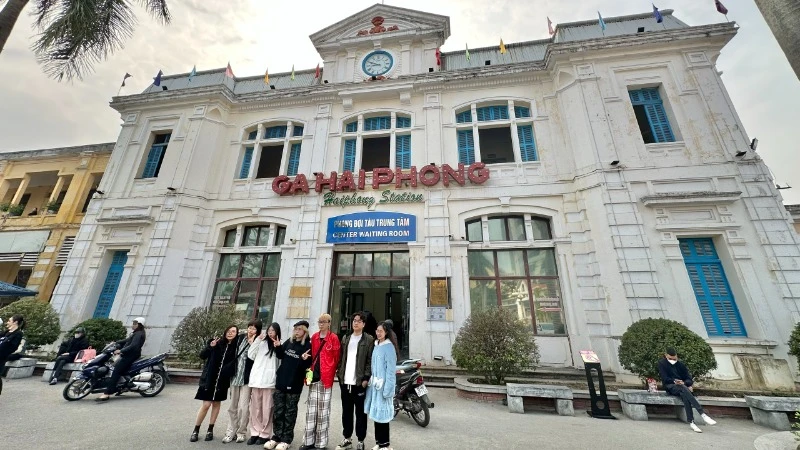
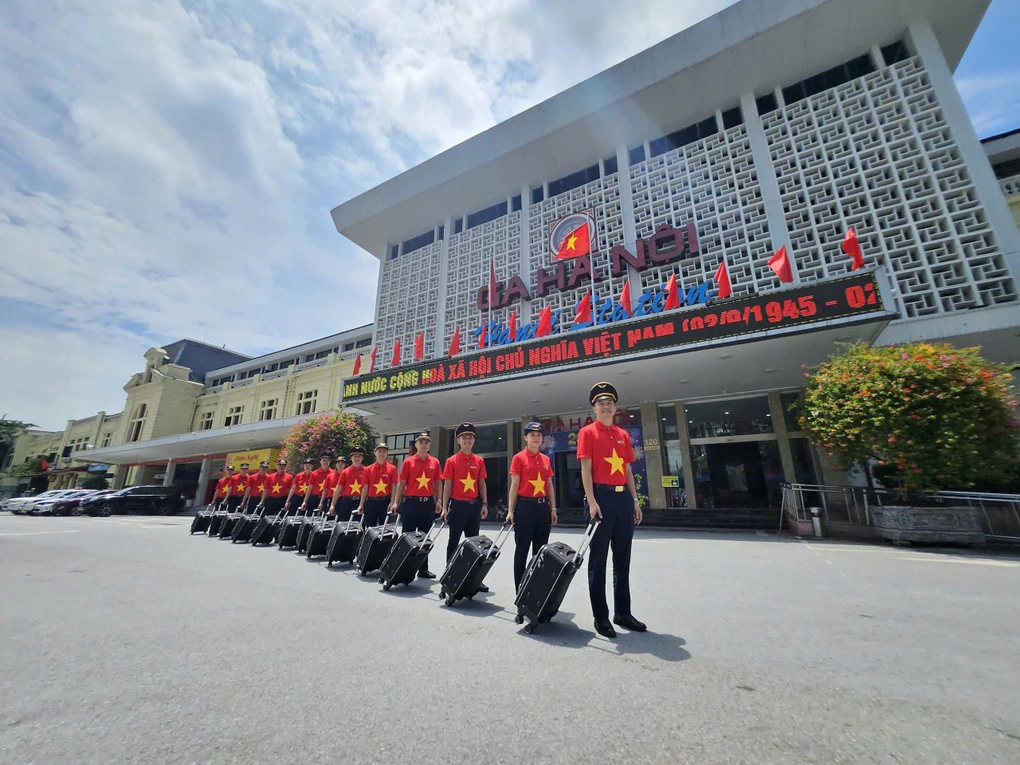
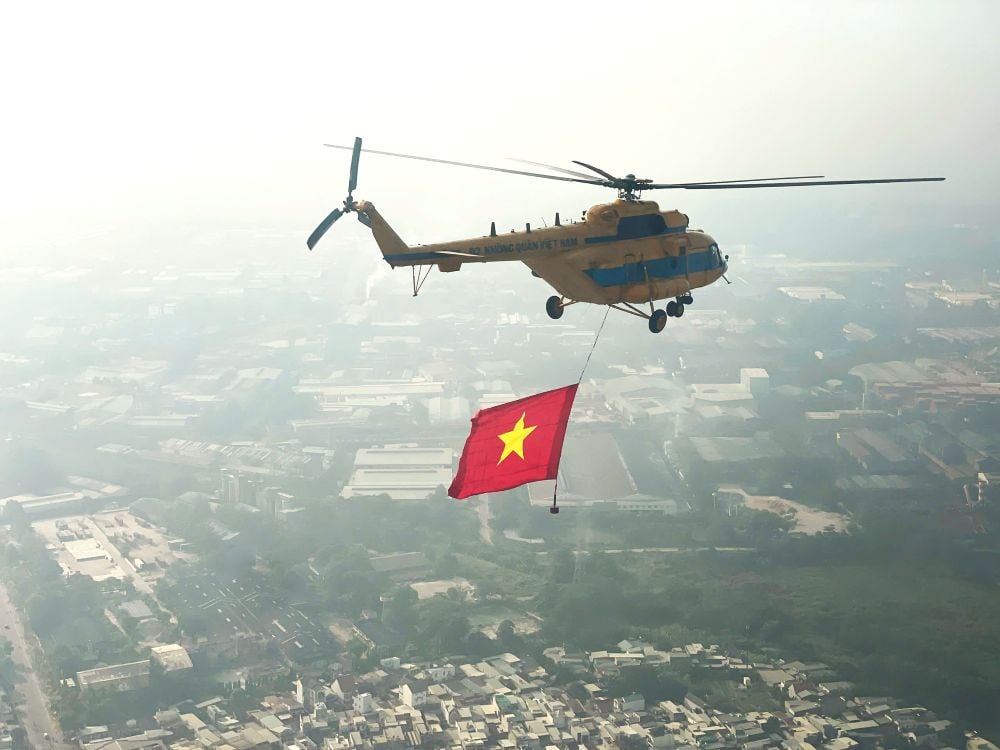


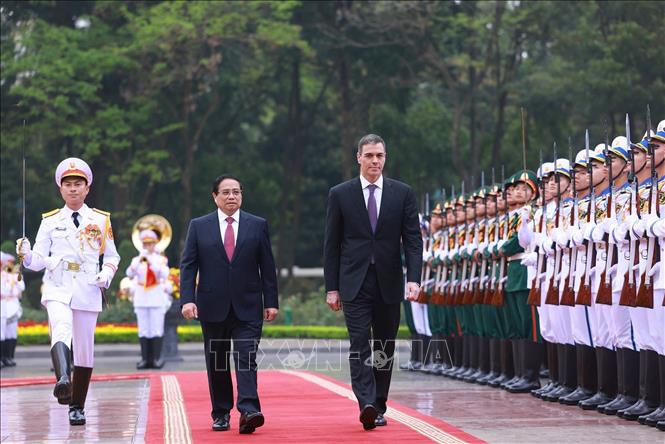
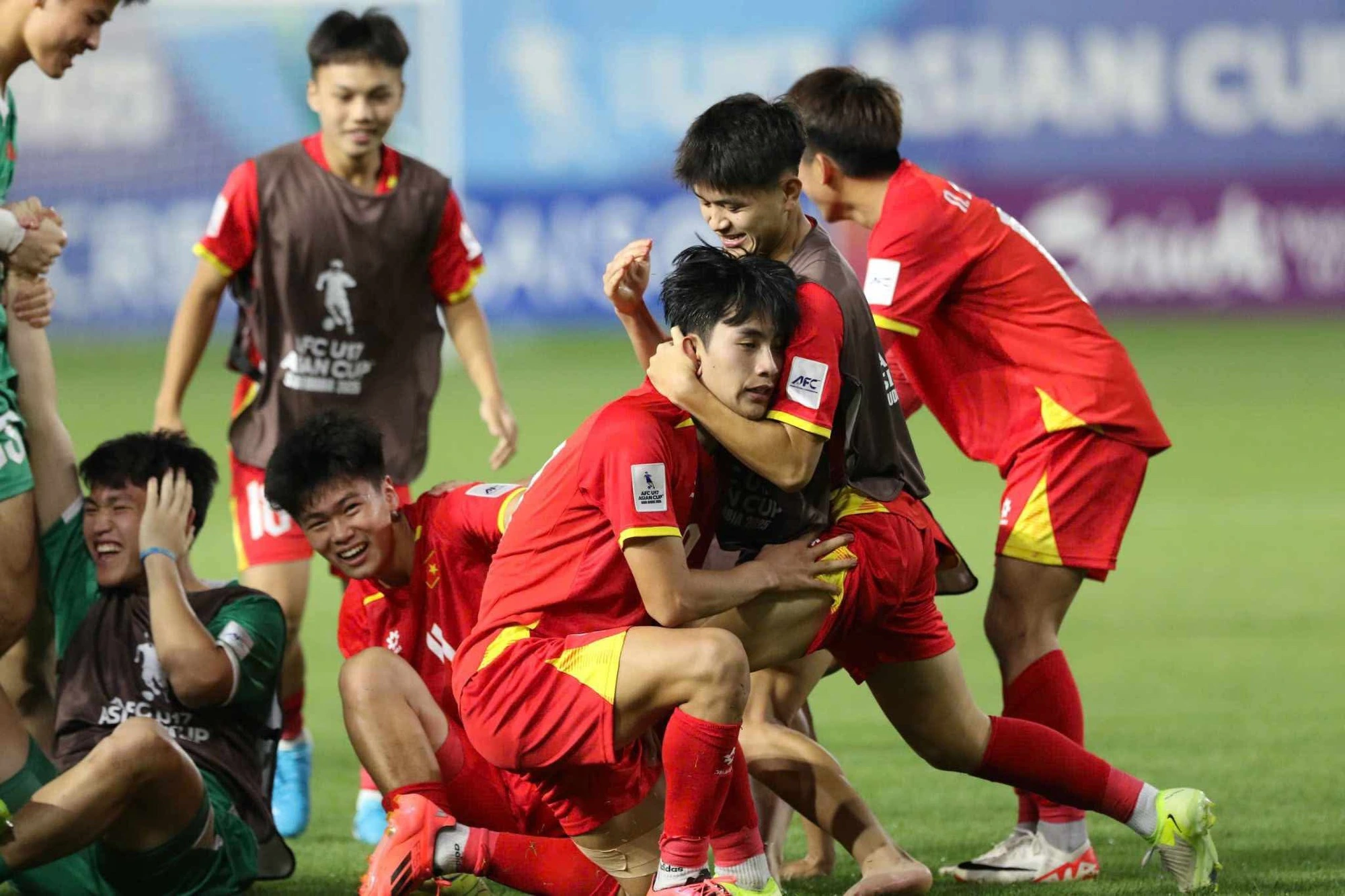









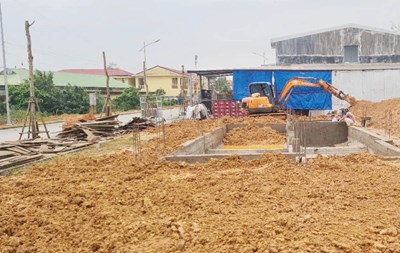

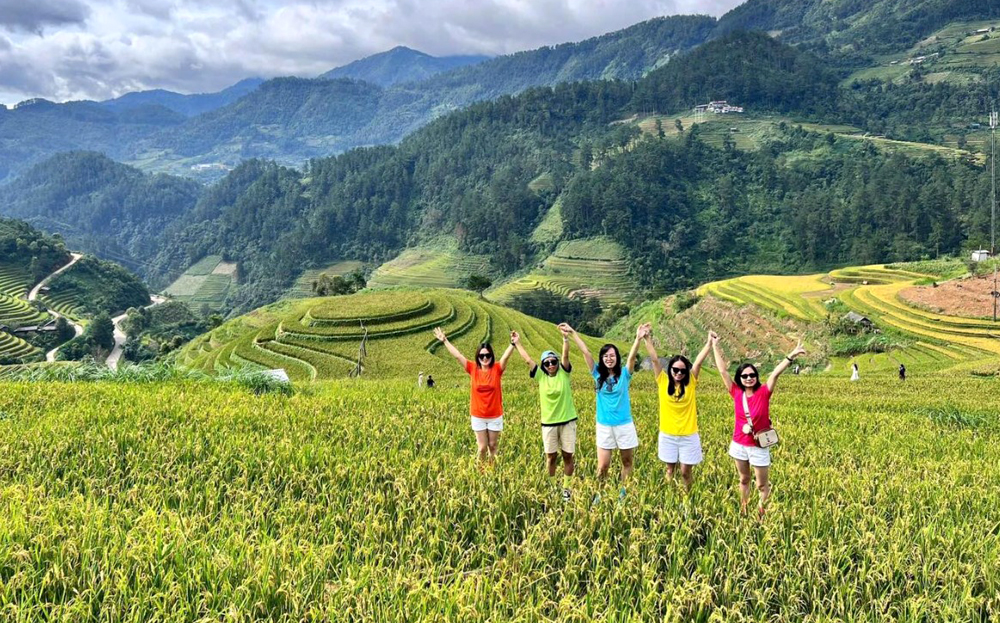

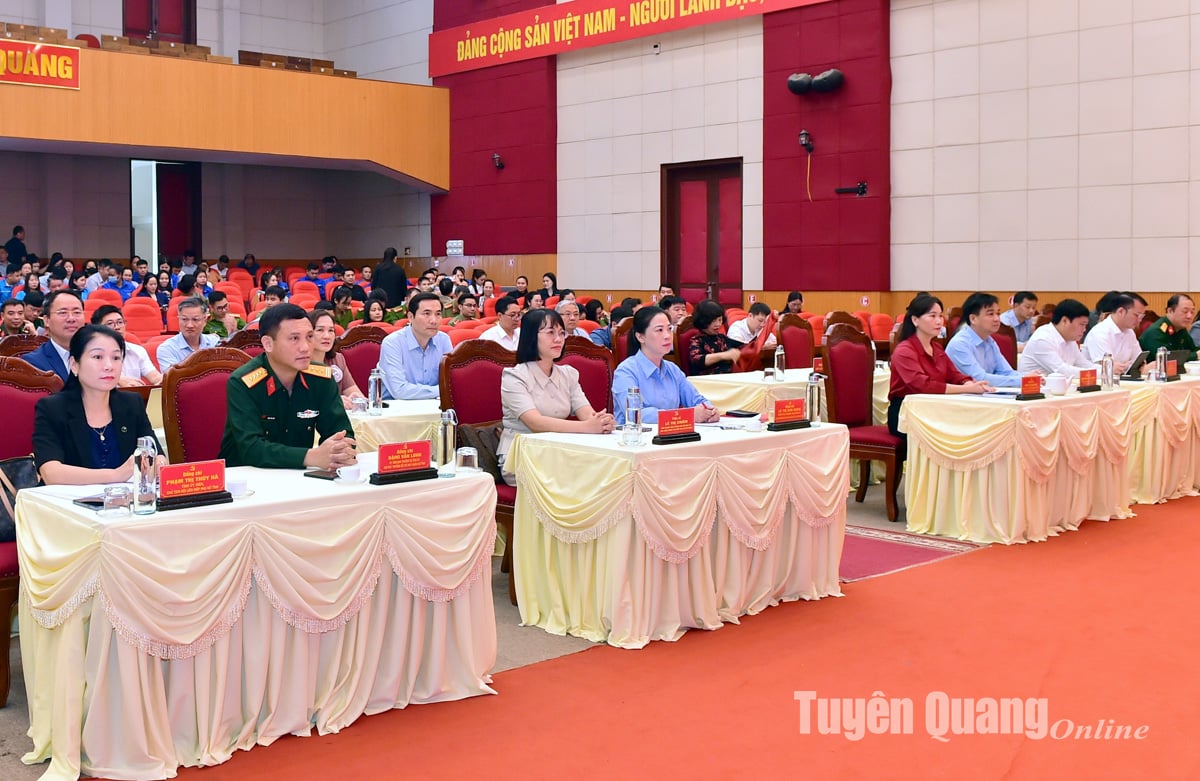
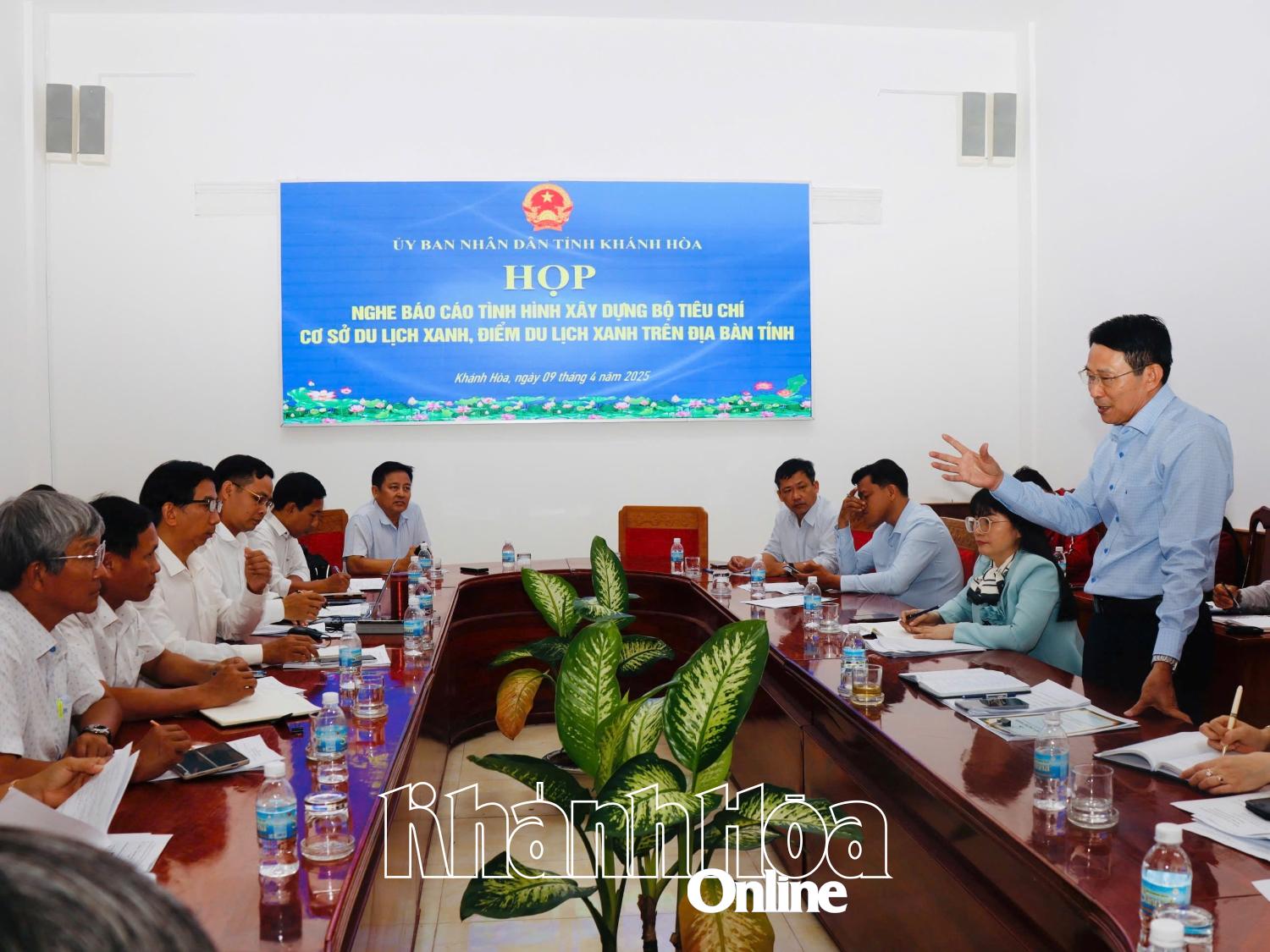








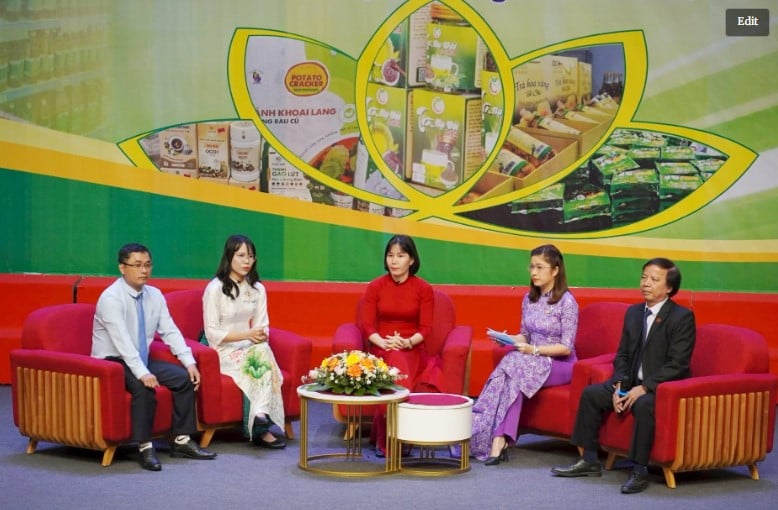

Comment (0)